|
Journey to a Stronger School: Lessons Learned in Accreditation
A series of professional learning programs addressing issues raised in the accreditation process
The content of this series has been guided by our accreditation process and the evaluations of our schools. The goal of accreditation is to meet comprehensive standards in all aspects of school life and operations, and to function in alignment with one’s Mission.
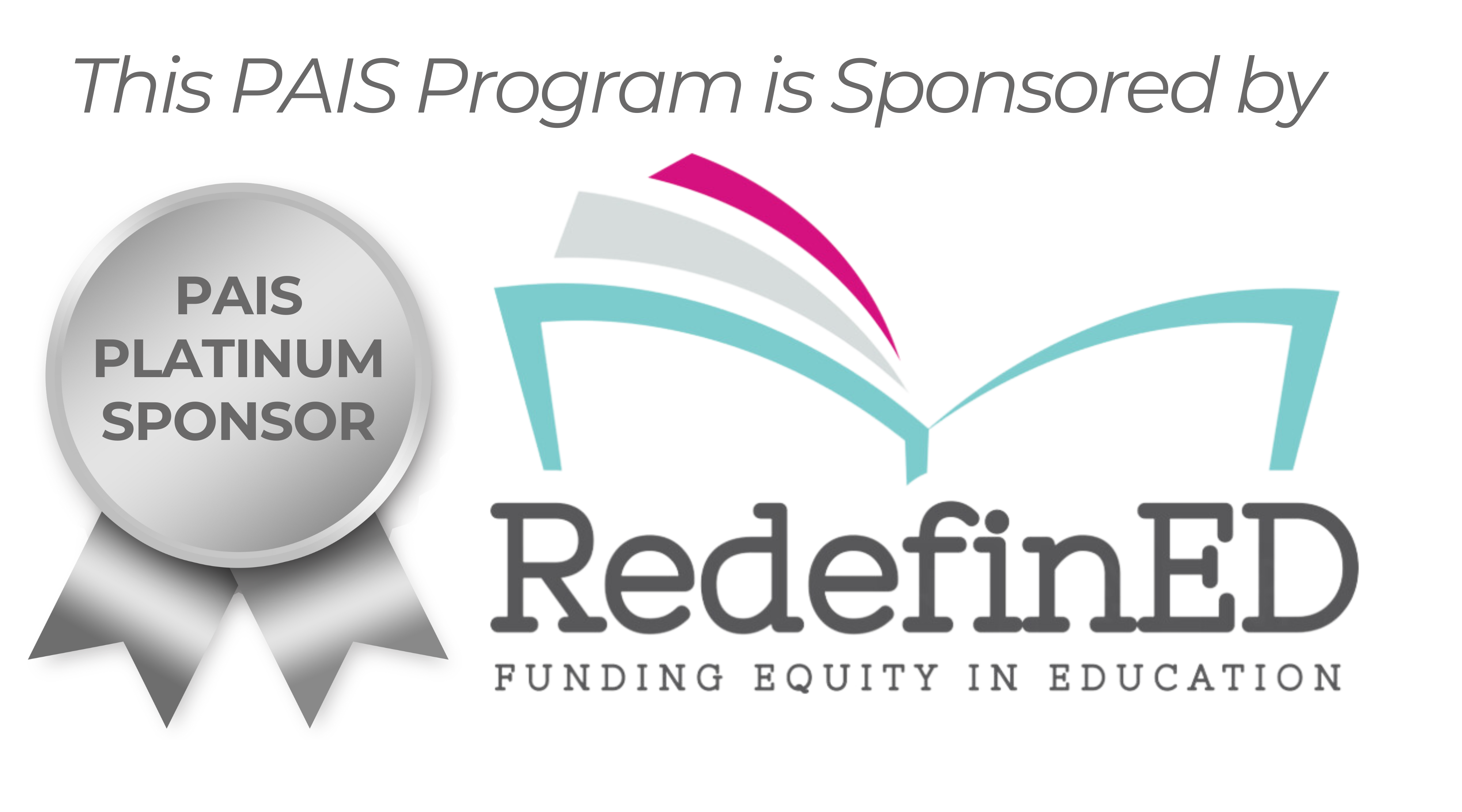
In the second year of this series, PAIS is focusing on the following areas in accreditation:
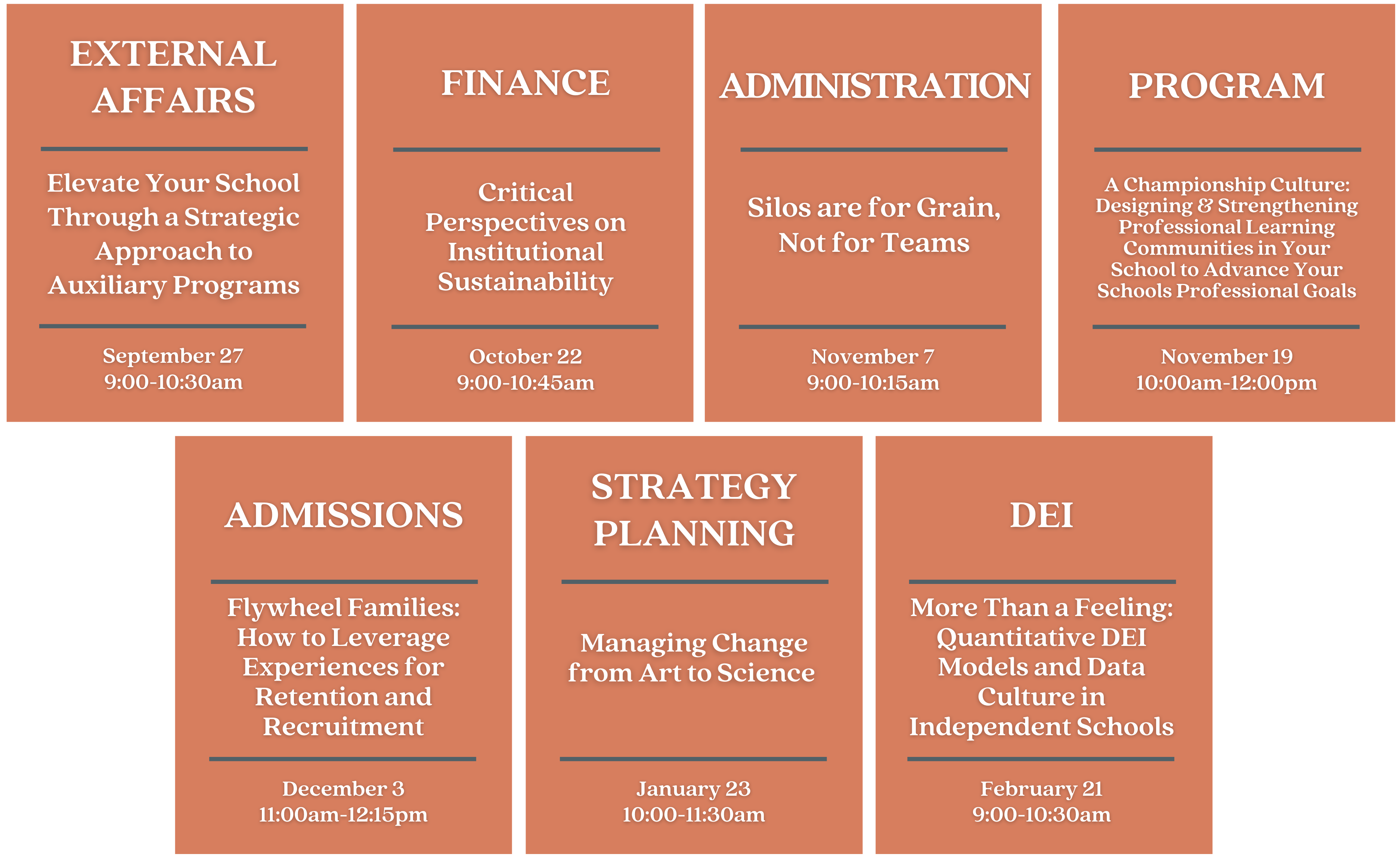
WHY SUBSCRIBE TO A SERIES?
Use the information in this series to nurture professional learning among your school’s leaders and participate in the PAIS community of schools. It’s a great value to our member schools, it provides easy access for colleagues to hear the same message, and you will meet expert presenters from the national scene.
As a member of the series, all educators and staff in your school may participate in all programs, which is a great cost savings to your school. Since all programs are virtual, there are no hidden transportation costs and participants may either engage live or view the recordings asynchronously. The series is open to PAIS member schools only. Schools that do not register for the series may have participants register for individual programs for $50 per participant, per program. Individual program registration will open in August 2024.
COST
$350 for schools less than 200 students, $550 for schools between 201-500 students, $750 for schools more than 500 students. Each school will select a point person for communication purposes and to serve as a liaison between the school and PAIS.

Registration for individual series webinars will open in August 2024.
INDIVIDUAL PROGRAM DETAILS:
STRATEGY PLANNING
Accreditation Indicator 9.06 The school's budget reflects a commitment to developing the external affairs operations to support the school's future sustainability.
Elevate Your School Through a Strategic Approach to Auxiliary Programs
September 27, 9:00-10:30am
Audience: Heads of School, Assistant Heads of SchoolDivision Heads, Chief Financial and Operations Officers, Directors of Auxiliary Programs, After School and Summer Program Director
Auxiliary revenue streams now contribute more than annual giving or endowment draw to independent school budgets. Small under-resourced day schools to large boarding schools are finding success investing in and committing to non-tuition revenue streams. The return on investment, schools are discovering, are far more than just financial and can be an important factor to supporting strategic and mission priorities. How organizations integrate and support auxiliary programs is foundational. With alignment of auxiliary programs to organizational priorities, building the right portfolio of programming, creating an effective leadership team, supporting internal departmental relationships, and understanding your market are some of the ingredients for success. This session will provide a high level overview of national trends, best practices, and data to help understand the auxiliary landscape and the proven strategies for success.
Meet the Presenters:
Nat Saltonstall, Executive Director, SPARC
 Nat Saltonstall is a recognized leader in the field of independent school summer and auxiliary programming. Over the past 30 years, Nat has developed and directed high performing summer programs at multiple independent schools while also elevating the industry through his work on behalf of all schools. Nat is a frequent presenter on the topic of auxiliary programming at conferences and leads SPARC with the same enthusiasm that first inspired him to dedicate his career to independent schools. Nat Saltonstall is a recognized leader in the field of independent school summer and auxiliary programming. Over the past 30 years, Nat has developed and directed high performing summer programs at multiple independent schools while also elevating the industry through his work on behalf of all schools. Nat is a frequent presenter on the topic of auxiliary programming at conferences and leads SPARC with the same enthusiasm that first inspired him to dedicate his career to independent schools.
David Sullivan, Senior Advisor, SPARC
 While David Sullivan has served on the faculty of independent schools for many years, his career in education began as a teacher at a summer program. Over his 35+ years in schools, including two decades as a head, David has successfully turned around struggling schools by improving programs and financial sustainability–especially through leveraging summer and auxiliary programs. A former Chair of an independent school accrediting association, David is interested in how organizations improve, clarify and attain strategic objectives, and develop leadership at all levels. While David Sullivan has served on the faculty of independent schools for many years, his career in education began as a teacher at a summer program. Over his 35+ years in schools, including two decades as a head, David has successfully turned around struggling schools by improving programs and financial sustainability–especially through leveraging summer and auxiliary programs. A former Chair of an independent school accrediting association, David is interested in how organizations improve, clarify and attain strategic objectives, and develop leadership at all levels.
FINANCE
Accreditation Indicators 6.01 There are adequate financial resources and funding to support the school’s mission and 6.03 A process for long-range financial planning is in place.
Critical Perspectives on Institutional Sustainability
October 22, 9:00-10:45am
Audience: Heads of School, CFO’s, Admissions Directors, Development Directors, Board Chairs
Large forces challenge the traditional economic model of independent schools. In this session, participants will investigate what actions can be taken in the next five years to ensure positive options for their institutions. Using an analytic framework and performance analytics on more than 1000 schools, learn how to appraise market position, comparative advantage and financial performance; discover how to optimize market, educational and financial dynamics for near and long-term performance; and explore full-pay domestic enrollment as a keystone to program, population and philanthropy. Session to include Q&A as well as sustainability analytics by segment (K-12, Primary, Secondary) and individual school (by code for early registrants).
Meet the Presenter:
William Kummel, Principal at Rational Partners, LLC
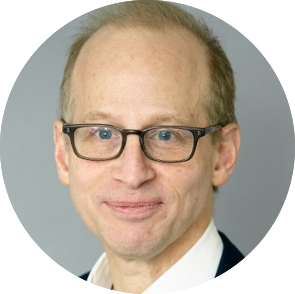 William (Bill) Kummel is a principal of Rational Partners, a New York based management consultant in institutional economics to independent schools. The work measures and evaluates near and long-term institutional market position, comparative advantage and financial sustainability. Rational Partners maintains a proprietary dataset of institutional sustainability on 1000+ independent schools in North America. A graduate of independent schools – Phillips Academy (Andover), Buckley (New York City) – Kummel received an MBA and JD from Georgetown as well as a BA in Architecture from Yale. William (Bill) Kummel is a principal of Rational Partners, a New York based management consultant in institutional economics to independent schools. The work measures and evaluates near and long-term institutional market position, comparative advantage and financial sustainability. Rational Partners maintains a proprietary dataset of institutional sustainability on 1000+ independent schools in North America. A graduate of independent schools – Phillips Academy (Andover), Buckley (New York City) – Kummel received an MBA and JD from Georgetown as well as a BA in Architecture from Yale.
ADMINISTRATION
Accreditation Indicator 5.05 There is wide recognition that the well-being of the school relies on a culture of professional growth that is perpetuated by the School’s leadership.
Silos are for Grain, Not for Teams
November 7, 9-10:15am
Audience: School Leaders
Schools are made up of many teams: the leadership team, departmental teams, divisional teams, grade level teams and others. In order for a school to excel, its teams must excel. Yet, precious little time is spent on helping teams understand how to function at a high level. As a result, it is not surprising so many teams fail to reach their potential.
This talk will focus on how to transform a school's teams from quality individuals working in their areas to interdependent teams with shared motivation and common goals. We will cover how to create a true team mindset and create the kind of team that will really move your school forward. The session will briefly review the research based six components of great teamwork and then provide concrete approaches to apply those approaches to leadership teams.
Remember “The strength of the team is each individual member. The strength of each member is the team.”
Meet the Presenter:
Dave Michelman, Educational Consultant, Michelman Consulting
 As a school leader and innovator, Dave Michelman understands both the importance of teamwork and how to create structures to allow excellent team work to thrive. Dave led Independent Schools education for 35 years. He headed two schools, most recently Duke School, which he led for 14 years. He was both a lower and middle school division director for 10 years prior to becoming a Head. He served on SAIS' board as well as AIMS' accreditation committee. Dave has been the Chair of two nonprofit boards and currently serves on MISBO's board. Dave also is an attorney and parent of two, grandparent of three, and husband for 40 years to one. As a school leader and innovator, Dave Michelman understands both the importance of teamwork and how to create structures to allow excellent team work to thrive. Dave led Independent Schools education for 35 years. He headed two schools, most recently Duke School, which he led for 14 years. He was both a lower and middle school division director for 10 years prior to becoming a Head. He served on SAIS' board as well as AIMS' accreditation committee. Dave has been the Chair of two nonprofit boards and currently serves on MISBO's board. Dave also is an attorney and parent of two, grandparent of three, and husband for 40 years to one.
PROGRAM
Accreditation Indicator 17.08 A varied professional development program, that meets the different types of adult learners, is in place to develop teachers’ skills and proficiencies for newly adopted content and delivery options.
A Championship Culture: Designing and Strengthening Professional Learning Communities in Your School to Advance Your Schools Professional Goals
November 19, 10:00am-12:00pm
Audience: Anyone looking to build a high-performing adult culture using PLCS: Heads of school, Division Directors, Academic Deans, Deans of Faculty, Directors of Teaching & Learning, Department Chairs
Our schools are at their best when the adults are as engaged in communities of learning as our students, and Professional Learning Communities (PLCs) are an effective lever in cultivate a championship culture that connects daily practice with school values and vision.
This interactive workshop will offer educators the opportunity to engage in real-time activities, discussions, and case studies. Attendees will learn how to integrate the school’s vision into PLC operations effectively, develop strategies for professional growth, and create actionable plans for revitalizing their PLCs. Gain practical tools and insights to transform your professional learning environment and drive your educational community towards excellence. Participants should come prepared to share where they are in the journey to use PLCs to transform culture and ready to develop an actionable plan to move forward.
Learning Objectives:
Understand the role of PLCs in enhancing school culture and professional growth.
Develop strategies to effectively integrate the school’s vision and goals into the functioning of PLCs, ensuring they contribute positively to both academic and non-academic outcomes.
Create actionable plans that participants can immediately implement to revitalize their PLCs, making them more effective and aligned with institutional goals.
Meet the Presenters:
Meera Shah, Educational Consultant and Founder of Trey Education
 As an independent school educator and academic leader for over two decades, Meera has mentored teachers, overseen the professional growth of faculty at the department and all-school level, run leadership teams, and shepherded curricular and programmatic change in schools. Meera founded Trey Education to help independent school leaders move their faculty and programs forward. As an independent school educator and academic leader for over two decades, Meera has mentored teachers, overseen the professional growth of faculty at the department and all-school level, run leadership teams, and shepherded curricular and programmatic change in schools. Meera founded Trey Education to help independent school leaders move their faculty and programs forward.
As a consultant, she's provided one-on-one thought partnership and mentorship for academic leaders, facilitated custom all-school leadership development programming for department chairs, coached teachers and developed teacher mentorship programs, facilitated team retreats, partnered with regional associations for professional learning, supported schools and leaders with program visioning and development, optimized schedules, conducted senior administrative searches; and more. In short, Meera provides strategic school leaders with added capacity, expertise, and third-party perspectives and facilitation.
Meera partners with schools and leaders with the belief that change, growth, and empowerment are intertwined, and thus prioritizes authentic relationships, responsive design, and collaboration in her work.
Lauren Evans, Lower and Middle School Division Head, Carolina Day School
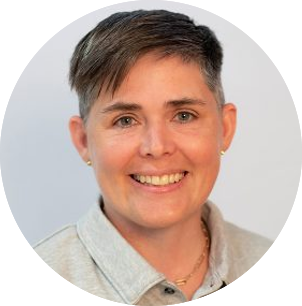 Lauren Evans stands at the forefront of educational innovation, particularly renowned for her dedication to transforming learning environments into spaces where equity, empathy, and leadership flourish. As the lower and middle school division head at Carolina Day School, Lauren has spearheaded pivotal curriculum reforms that have significantly enriched academic and social-emotional learning landscapes. Her unwavering commitment to professional and community development has instigated profound, transformative changes in educational methodologies and practices. Lauren Evans stands at the forefront of educational innovation, particularly renowned for her dedication to transforming learning environments into spaces where equity, empathy, and leadership flourish. As the lower and middle school division head at Carolina Day School, Lauren has spearheaded pivotal curriculum reforms that have significantly enriched academic and social-emotional learning landscapes. Her unwavering commitment to professional and community development has instigated profound, transformative changes in educational methodologies and practices.
With a deeply rooted background in special education and school administration, Lauren offers invaluable perspectives on crafting inclusive, student-centered educational experiences. Her approach integrates mindfulness, empathetic leadership, and a staunch commitment to social justice.
ADMISSIONS
Accreditation Indicator 10.01 Enrollment management is part of the school’s long-range strategic/financial plan and is based on well informed research and data analysis.
Flywheel Families: How to Leverage Experiences for Retention and Recruitment
December 3, 11:00am-12:15pm
Audience: Central Administrative Team, Admissions, Enrollment Managers and Staff
Chasing down enrollments and ensuring retention are two critical tasks for any independent school. What both groups need are great experiences; the kind of experiences that stand out and make them proud to be a part of your community. The idea of a flywheel may be new to you, but it's a valuable lesson to apply. When you have great experiences for prospective students, you're creating memories and affinity. That affinity aids your retention, which is bolstered by focusing on enrolled student and family experiences. Put together, you build strong word of mouth and advocacy that feeds future enrollment as well. We'll look at data and walk through examples of how you can measure the impact of your current experiences and optimize them for even more impact.
Meet the Presenter:
Will Patch, Senior Enrollment Insights Leader, Niche
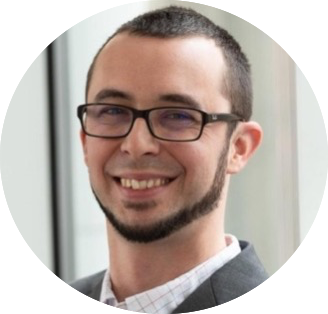 Prior to coming to Niche in 2019 Will served 9 years at Manchester University in roles as an Admissions Counselor, Associate Director for Admissions Operations, Social Media Coordinator, and ultimately as Digital Strategist. Will surfaces tactical insights from user behavior and surveys to help higher ed build recruitment strategies. In addition to the Enrollment Insights blog, webinars, and podcast; Will is a frequent conference speaker and podcast guest. He has presented at NACAC, AACRAO-SEM, AMA Higher Ed, CASE V, EduWeb, and EMA. Will's work has been featured in Forbes, Inside Higher Ed, CNBC, CNN, the LA Times, and The New York Times among other outlets. Prior to coming to Niche in 2019 Will served 9 years at Manchester University in roles as an Admissions Counselor, Associate Director for Admissions Operations, Social Media Coordinator, and ultimately as Digital Strategist. Will surfaces tactical insights from user behavior and surveys to help higher ed build recruitment strategies. In addition to the Enrollment Insights blog, webinars, and podcast; Will is a frequent conference speaker and podcast guest. He has presented at NACAC, AACRAO-SEM, AMA Higher Ed, CASE V, EduWeb, and EMA. Will's work has been featured in Forbes, Inside Higher Ed, CNBC, CNN, the LA Times, and The New York Times among other outlets.
STRATEGY PLANNING
Accreditation Indicator 26.03 Goals and plans are appropriately adjusted in light of actual experience and unanticipated realities.
Managing Change from Art to Science
January 23, 10-11:30am
Audience: Heads of School, Central Administrative Team, Division Leaders, Department Chairs
Managing change is one of the most challenging aspects of school leadership. In this workshop we will discuss how to analyze change and create a path to move your constituencies towards your vision. Using the science of change management, data collection, and strategic steps we will learn how to get from idea to implementation.
Workshop participants will leave the understanding:
● The Change Curve and Implementation Dip
● Identifying where individuals are in the change matrix and how to strategically move people
● Identifying the steps needed to successfully implement any change from vision to implementation
● How to identify and use the Push/Pull theory of change to move your school forward
Meet the Presenter: Mike Gwaltney, Consultant ISM
 Internationally known for his experience designing and implementing Project-Based Learning (PBL), Mike has spoken at conferences and engaged in school consultations across North America, Asia, and Australia. Since he joined as a Consultant, Mike has consulted nearly 100 schools. Internationally known for his experience designing and implementing Project-Based Learning (PBL), Mike has spoken at conferences and engaged in school consultations across North America, Asia, and Australia. Since he joined as a Consultant, Mike has consulted nearly 100 schools.
Mike is a pioneering leader in online learning within the American private-independent school community. From 2010 to 2014, Mike taught courses for students and professional development courses for teachers at the Online School for Girls. From 2014 to 2017, Mike led the development of an award-winning, blended/online program for private-independent schools in Portland, Oregon.
Mike's areas of expertise at ISM are academic leadership, curriculum design, faculty culture, growth, and evaluation, and strategic academic planning.
DEI
Accreditation Indicator 26.06 The school considers issues of diversity, equity, and inclusion in its planning.
More Than a Feeling: Quantitative DEI Models and Data Culture in Independent Schools
February 21, 9:00-10:30am
Audience: Heads of School, Central Administration Team, DEI Directors
Come learn how you can harness the power of data science to drive educational excellence through equitable and inclusive practices. In this session, we'll explore quantitative Diversity, Equity, and Inclusion (DEI) models made possible by recent technological advancements in data science. We'll discuss the insights gained by grade analysis, course evaluations with disaggregated data, and climate survey outcomes. Additionally, we'll examine data-driven strategies to develop DEI-focused professional development initiatives. Attendees will have the opportunity to formulate DEI-focused research questions and examine real-world examples of equity-minded studies, all while engaging in thought-provoking discourse on interpreting data through the lens of social context and unlocking insights that challenge the status-quo.
Meet the Presenters:
Rachel Gorsky, Director of Institutional Research and Data Analytics, Gilman School
 Rachel Gorsky is the Director of Institutional Research and Data Analytics at Gilman School, an all-boys independent school in Baltimore, MD. As a researcher, she is dedicated to advancing school improvement through the analysis and presentation of official, accurate, and unbiased data to support and guide school leaders. In Rachel’s role, she collaborates with school leadership to monitor and drive progress on strategic initiatives. This work encompasses a wide array of activities, including the hiring and evaluation of teachers and administrators, tracking and promoting community wellness, and the pursuit of Diversity, Equity, and Inclusion goals. Rachel also engages in research on the interplay of social and emotional factors in leveraging data for strategic decision-making. As part of this work, she studies the significance of fostering trust in work environments and the impact of effective communication on cultivating an inquiry culture within the institution Rachel Gorsky is the Director of Institutional Research and Data Analytics at Gilman School, an all-boys independent school in Baltimore, MD. As a researcher, she is dedicated to advancing school improvement through the analysis and presentation of official, accurate, and unbiased data to support and guide school leaders. In Rachel’s role, she collaborates with school leadership to monitor and drive progress on strategic initiatives. This work encompasses a wide array of activities, including the hiring and evaluation of teachers and administrators, tracking and promoting community wellness, and the pursuit of Diversity, Equity, and Inclusion goals. Rachel also engages in research on the interplay of social and emotional factors in leveraging data for strategic decision-making. As part of this work, she studies the significance of fostering trust in work environments and the impact of effective communication on cultivating an inquiry culture within the institution
Eric Heilman, Center for Institutional Research in Independent Schools
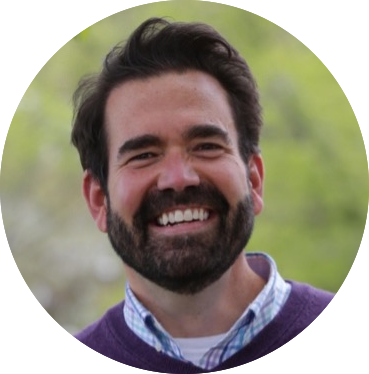 Eric Heilman is the Executive Director of the Center for Institutional Research in Independent Schools (CIRIS) and the Director of Institutional Research at Maret School in Washington, DC where he develops and implements data-driven models supporting enrollment management, faculty development, DEIJ initiatives, and student wellness. Over the last fifteen years, Eric has worked in a variety of capacities in independent schools including middle and upper school math teacher, upper school grade dean, and institutional researcher. Eric Heilman is the Executive Director of the Center for Institutional Research in Independent Schools (CIRIS) and the Director of Institutional Research at Maret School in Washington, DC where he develops and implements data-driven models supporting enrollment management, faculty development, DEIJ initiatives, and student wellness. Over the last fifteen years, Eric has worked in a variety of capacities in independent schools including middle and upper school math teacher, upper school grade dean, and institutional researcher.
After finishing an undergraduate degree in International Economics at Georgetown University, Eric went on to graduate school in Economics at the University of Chicago where he earned a Master’s degree. While at the University of Chicago, Eric worked on the research team of Nobel Prize winner James Heckman, focusing on microeconomic models of educational attainment.
|